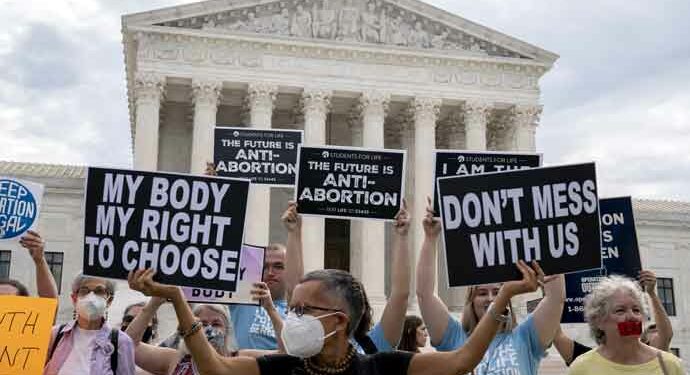A federal judge in Alabama is set to rule on whether the state can prosecute healthcare providers and advocates who help pregnant women receive abortions outside of the state.
Since the Supreme Court decided to overturn Roe v. Wade in 2022, Alabama enforced one of the U.S.’s strictest abortion bans, with no exceptions for rape or incest. There is an exception, however, for serious health risks to the patient.
Attorney General Steve Marshall (R) threatened to use Alabama’s criminal conspiracy law to target people who “aid and abet” abortions, such as counseling and financial assistance for out-of-state procedures.
This stance concerned healthcare providers and advocacy groups like the Yellowhammer Fund and West Alabama Women’s Center (WAWC), both of which sued Marshall to avoid prosecution.
“No Alabama law authorizes such prosecutions,” the providers’ lawsuit claims. “Nor could it. That would be a blatant extraterritorial overreach of state power.”
These organizations claim that the attorney general’s threats create a chilling effect, stifling their ability to offer necessary information and support to those seeking abortions in other states. Consolidated into a single case, the lawsuits assert that Marshall’s threats violate constitutional rights, such as the First Amendment and the right to travel.
The plaintiffs, represented by the ACLU of Alabama, are worried that even providing counseling or directing patients to resources for out-of-state abortions could lead to criminal charges. The case has more significant implications beyond Alabama.
Advocates warn that if Marshall’s position is upheld, it could isolate individuals seeking abortions by cutting them off from essential support networks. They claim that such actions represent a dangerous overreach of state power and could set a worrisome precedent for other states.
The plaintiffs’ concerns are exacerbated by the challenges of abortion access in the Southeast, where many states imposed bans or harsh restrictions.
Even before Roe v. Wade’s overturning, abortion access in Alabama was limited as many patients needed to travel out of state. Now, with abortion almost impossible to obtain in the region, patients have to navigate a complex legal landscape and travel long distances to access care.
With the entire Southeast now having banned or restricted abortion, advocates say people must travel hundreds of miles to receive an abortion.
Despite Alabama’s strict abortion laws staying in place, advocates hope that the ruling is going to protect at least those offering crucial support from criminal penalties. Marshall’s office then asked the court to dismiss the now-consolidated case.
“An elective abortion performed in Alabama would be a criminal offense; thus, a conspiracy formed in the State to have that same act performed outside the State is illegal,” his filing stated.
He also urged the court to find that the plaintiffs do not have standing to sue on behalf of their patients.
“Plaintiffs’ evidence shows only arms-length relationships with hypothetical clients … and thus does not establish a close relationship indicating that plaintiffs would be ‘as effective a proponent’ as the women themselves,” the attorney general claimed.
As the case nears its conclusion, all eyes are on U.S. District Judge Myron Thompson, who previously rejected Marshall’s request to dismiss the case.
Thompson’s upcoming decision could shape the future of abortion-related prosecutions and set a precedent for how far states can go in terms of enforcing their abortion bans beyond their borders.
“Alabama can no more restrict people from going to, say, California to engage in what is lawful there than California can restrict people from coming to Alabama to do what is lawful here,” the U.S. district judge wrote.
In December 2023, the Texas Supreme Court blocked a judge’s ruling, which allowed a pregnant woman named Kate Cox with a fatal fetal abnormality to have an abortion.
The decision brought attention to the state’s medical exception to its controversial ban on abortions after six weeks, which is viewed as one of the strictest in America.
Read more about:
Source link : http://www.bing.com/news/apiclick.aspx?ref=FexRss&aid=&tid=66b8eb7a25ff4fd3bfa9671cb7426ebb&url=https%3A%2F%2Fuinterview.com%2Fnews%2Fdaily-digest%2Falabama-judge-to-rule-on-whether-the-state-can-prosecute-healthcare-providers-who-aid-out-of-state-abortions%2F&c=17093660851834688198&mkt=en-us
Author :
Publish date : 2024-08-11 05:45:00
Copyright for syndicated content belongs to the linked Source.




